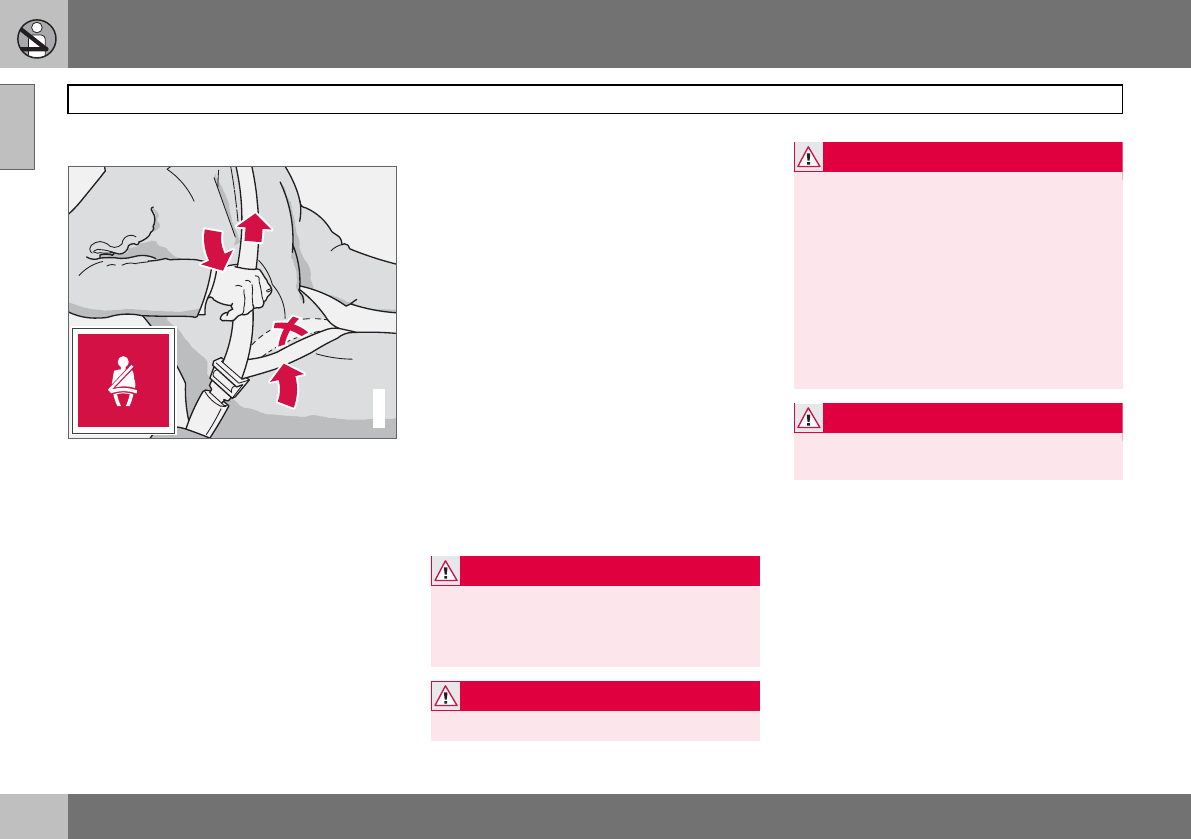
01 Safety
12
Seatbelts
01
Always use a seatbelt
Tensioning the hip strap. The belt must be
positioned low down.
Heavy braking can have serious conse-
quences if the seatbelts are not used, so
make sure that all passengers use their seat-
belts. It is important that the seatbelt lies
against the body so it can provide maximum
protection. Do not lean the backrest too far
back. The seatbelt is designed to protect in a
normal seating position.
Putting on a seatbelt:
– Pull the seatbelt out slowly and secure it
by pressing the buckle into the lock. A
loud "click" indicates that the seatbelt has
locked.
Releasing the belt
– Press the red lock button and then let the
seatbelt retract. If the seatbelt does not
retract fully, feed the seatbelt in by hand
so that it does not hang loose.
The seatbelt locks and cannot be withdrawn:
• if it is pulled out too quickly.
• during braking and acceleration.
• if the car leans heavily.
Keep in mind the following:
• do not use clips or anything else that can
prevent the seatbelt from fitting properly
• ensure that the seatbelt is not twisted or
caught on anything
• the hip strap must be positioned low down
(not over the abdomen).
Tension the hip strap over the lap by pulling
the diagonal shoulder belt as illustrated.
G020104
WARNING
The seatbelts and airbags interact. If a seat-
belt is not used or is used incorrectly, this
may diminish the protection provided by the
airbag in the event of a collision.
WARNING
Each belt is intended for one person only.
WARNING
Never modify or repair the seatbelt yourself.
Contact an authorised Volvo workshop. If
the seatbelt has been subjected to a major
load, such as in a collision, the entire seat-
belt must be replaced. Some of the seat-
belt’s protective properties may have been
lost even if the seatbelt does not appear
damaged. The seatbelt must also be
replaced if it shows signs of wear or dam-
age. The new seatbelt must be type-
approved and designed for installation at
the same location as the replaced seatbelt.
WARNING
The rear seat is designed for a maximum of
two passengers.


















